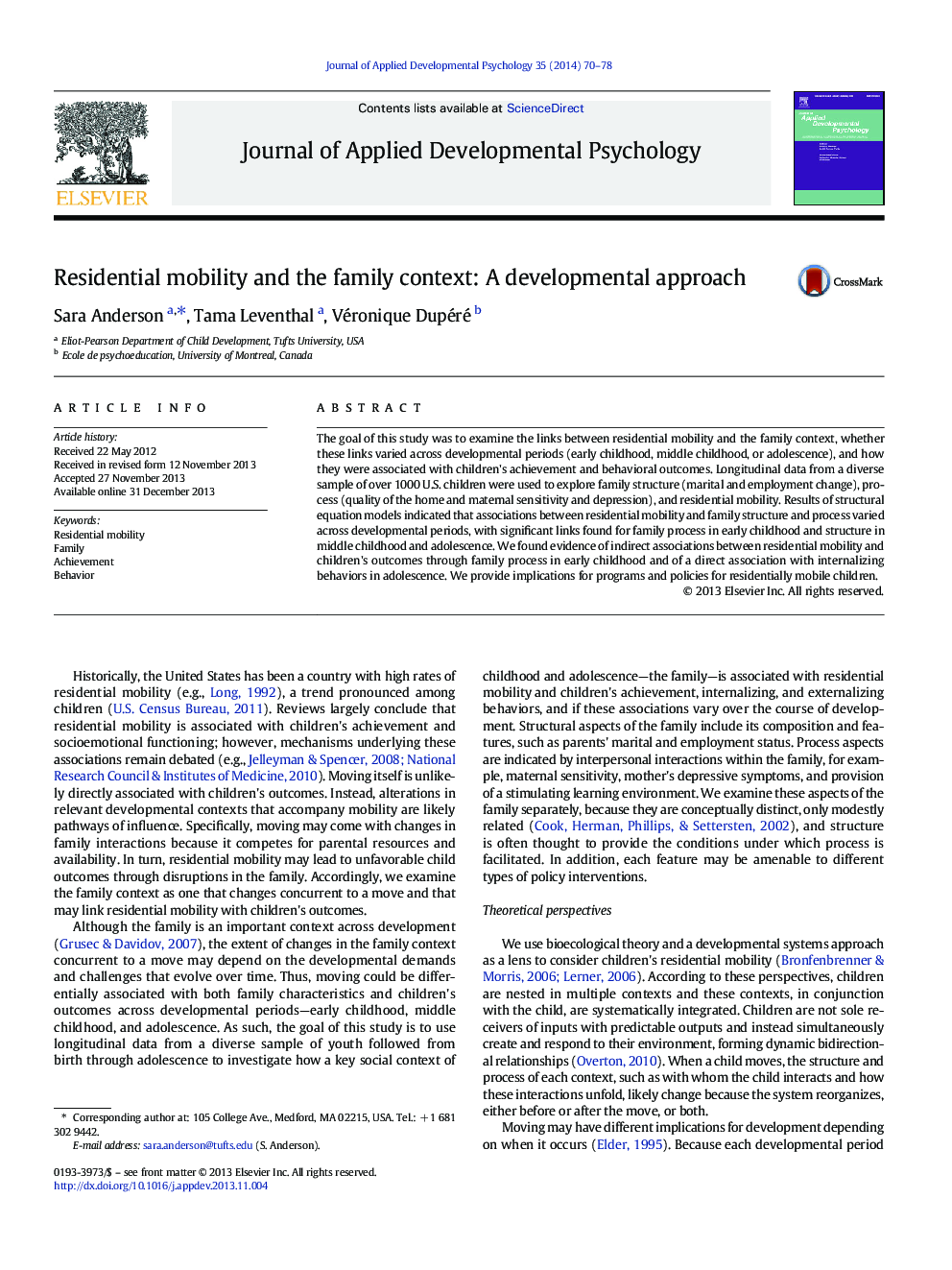| Article ID | Journal | Published Year | Pages | File Type |
|---|---|---|---|---|
| 359722 | Journal of Applied Developmental Psychology | 2014 | 9 Pages |
•We modeled how the family context was associated with residential mobility.•Models were compared across early childhood, middle childhood, and adolescence.•Moving was consistently associated with the family context across development.•Moving was indirectly associated with child behavior and achievement through the family context.•Associations varied across developmental periods.
The goal of this study was to examine the links between residential mobility and the family context, whether these links varied across developmental periods (early childhood, middle childhood, or adolescence), and how they were associated with children's achievement and behavioral outcomes. Longitudinal data from a diverse sample of over 1000 U.S. children were used to explore family structure (marital and employment change), process (quality of the home and maternal sensitivity and depression), and residential mobility. Results of structural equation models indicated that associations between residential mobility and family structure and process varied across developmental periods, with significant links found for family process in early childhood and structure in middle childhood and adolescence. We found evidence of indirect associations between residential mobility and children's outcomes through family process in early childhood and of a direct association with internalizing behaviors in adolescence. We provide implications for programs and policies for residentially mobile children.
